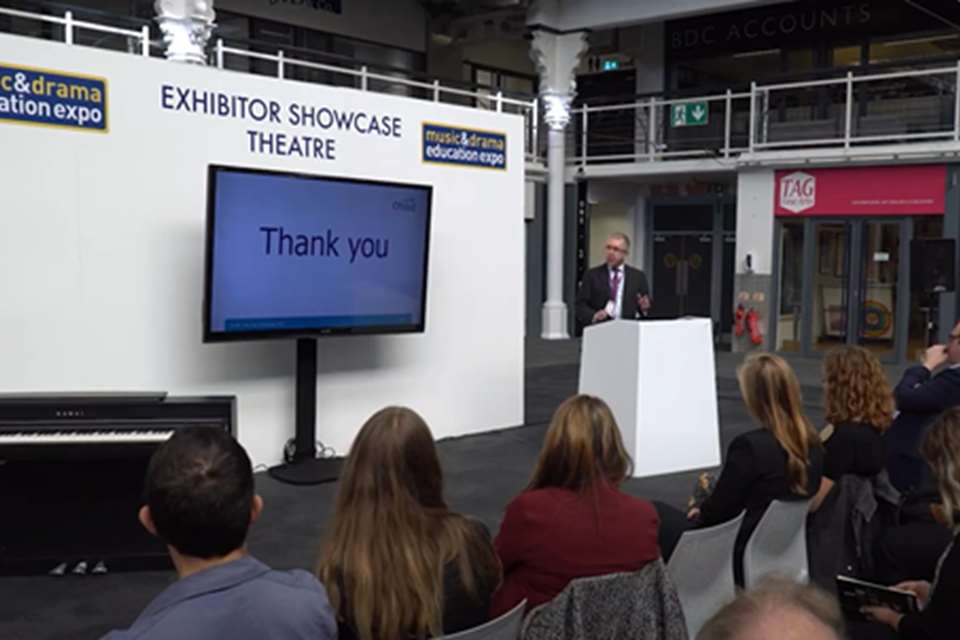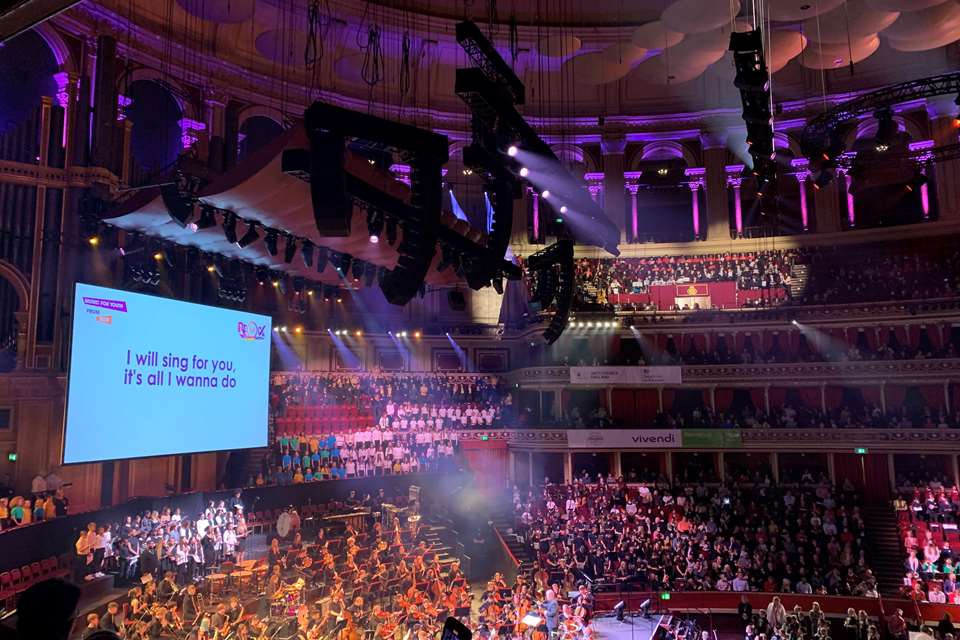Report: Westminster Education Forum music policy conference
Harriet Clifford
Wednesday, November 17, 2021
The editor reports on the Westminster Education Forum's 'Next steps for music education in England and implementing the new curriculum' conference.

Worawut/AdobeStock
On 10 November, around 80 delegates and 15 speakers logged on to the Westminster Education Forum (WEdF) policy conference, Next steps for music education in England and implementing the new curriculum, chaired by shadow education minister, Lord Mike Watson. Organised and hosted by one of 16 impartial and cross-party forums that has ‘no policy agenda of its own’, the online conference was billed as an opportunity for informed discussion and debate around music education policy.
The ‘new curriculum’ in the conference title refers to the non-statutory Model Music Curriculum (MMC) published by the Department for Education (DfE) in March. As pointed out on social media ahead of the event, and by speakers on the day, the 104-page document is not a new curriculum – instead, it is an example of how the National Curriculum can be implemented at Key Stages 1–3. This was evidently understood by all speakers, although the blunder by the event organisers seems only to compound one of the many challenges faced by the music education sector, particularly in relation to governance and policy making.
Familiar faces
Taking place over a full morning, speaker- or panel-led discussions broadly covered ‘immediate priorities’ for music education and the new National Plan, using the MMC, ‘improving standards’ through the curriculum, priorities for the music education workforce, and music in schools and the wider creative sector. Delegates heard from a number of stalwarts within music education, many of whom would have been familiar faces: Bridget Whyte, Jayne Price, Tom Redmond, Carolyn Baxendale, Simon Proctor, Mark Phillips, Deborah Annetts, Simon Toyne, Chris Walters, Lindsay Ibbotson, Philip Flood, professor Colin Lawson, Hannah Fouracre, and Agnes Hamilton.
Lord Watson opened the event by acknowledging his position ‘outside’ of the music education community, but highlighted Labour’s continued promotion of arts education in Parliament. Introducing subjects that would be covered in depth later on, he noted that the government ‘does not accept’ the role of the English Baccalaureate (EBacc) in the decline of music in schools, adding the sadly well-known point that students’ involvement in extra-curricular music is ‘too often’ reliant on their ‘ability to pay’.
In her keynote speech, Music Mark’s Bridget Whyte outlined music hub funding over the last decade, arguing that the amount available ‘isn’t keeping pace’ with rising student numbers, and pointing out that current hub funding equates to £8.56 per pupil. According to Whyte, our ‘number one priority’ in music education should be access, which she believes can be improved through advocacy, student voice, an increased emphasis on technology, and strengthened partnership work.
Big ideas
Partnerships – between hubs, schools, the music industry, higher education, and so on – were a key theme of the morning’s (and wider) discussions, as the sector looks ahead to the refreshed National Plan for Music Education (NPME). Carolyn Baxendale, head of Bolton Music Service, suggested that the MMC has had a positive impact on relationships between schools and hubs, while Philip Flood, director of Sound Connections, pointed out the current ‘disconnect’ between music education and the music industry. Meanwhile, researcher and First Thing Music project lead Lindsay Ibbotson focused on primary music teaching in her presentation, advocating for a ‘collaborative’ approach between specialist music and general primary teachers.
During the panel discussion on schools and the wider creative sector, director of the Royal College of Music Colin Lawson referred to the ‘yawning gulf’ between the state and independent sectors, while Agnes Hamilton, director of Pelican Music, emphasised the importance of in-school extra-curricular activity, issuing the stark warning that ‘we will not have a vibrant music industry in 20 years’ time if we do not invest in extra-curricular music’. Big ideas were floated – presumably one of the aims of such an event – and Arts Council England’s music education director Hannah Fouracre and others mooted the extension of the NPME to cover ages 0–25.
As well as floating big, sometimes blue-sky, ideas, speakers and delegates also asked big, sometimes unanswerable, questions. What will the ‘full effect’ of the pandemic be on the current generation of students? Why was so much time spent on the MMC when arts are so undervalued in policy making? And, from Simon Toyne, executive director of music at the David Ross Education Trust: ‘How many teachers have never actually experienced outstanding music education?’
Ways forward
Although much of the discussion pivoted around large-scale challenges facing music education in England, particularly in the wake of the pandemic, room was made for optimism, celebration, and practical ways forward. Ofsted’s Mark Phillips, whose clear warning against a ‘carousel’ approach to music in schools was picked up by Schools Week and Tes, spoke directly to classroom teachers and school leaders about what an ambitious music curriculum looks like, clearly setting out progression routes with consistent links back to the National Curriculum.
Although the conference was described by one speaker as a ‘who’s who in music education’, the lack of diversity on both the delegate and speaker lists was jarring, particularly given the emphasis in some presentations on equality, diversity and inclusion, as well as decolonising the curriculum. Bridget Whyte also pointed out: ‘It is interesting that we are in a three-hour discussion on music education, and we will not hear from young people.’ The programmed speakers, however, were insightful, knowledgeable, and their presentations were well researched, ensuring that the morning was packed with challenging and thought-provoking content – essential fuel for the continued conversation.
www.westminsterforumprojects.co.uk/conferences/westminster_education_forum





